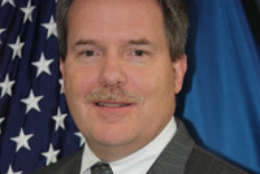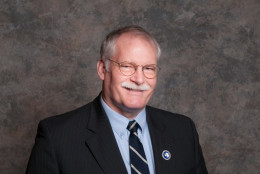National Science Foundation
-
On this episode of CyberChat, host Sean Kelley, former chief information security officer at the Environmental Protection Agency and Jerry Davis, chief information officer at NASA Ames, discuss the prevalence of CPS in our society and some key challenges and opportunities.
January 05, 2018 -
FEMA’s David Grant announced he’s retiring in January after 34 years of federal service, while Kevin Gates is leaving the House Armed Services Committee.
December 04, 2017 -
Amy Northcutt, the National Science Foundation’s chief information officer, died on May 6 after a short illness. The General Services Administration starts to fill political roles.
May 15, 2017 -
The Government Accountability Office issued its 2016 report on federal financial management and once again can’t offer an opinion because of incomplete data from DoD, HUD and NSF.
January 13, 2017 -
Social media has become a useful tool for federal agencies to show off the work they do every day.
July 04, 2016 -
OPM allowed each federal agency to decide how it would deal with the ongoing Metro Safetrack maintenance plan. Here's how they've responded.
June 08, 2016 -
Steve Blank teaches Hacking for Defense, a new course at Stanford University that links students with defense agencies to promote innovation in engineering.
June 06, 2016 -
What do you call a bonus system where 60 percent of all workers get the cash awards? Senior Correspondent Mike Causey says it's called the U.S. government.
June 06, 2016 -
A new report by the federal chief technology officer highlights the power of big data while also emphasizing the need to consider its ethical implications.
May 09, 2016 -
JoAnn Slama Lighty, division director for Chemical, Bioengineering, Environmental, and Transport Systems (CBET), at the National Science Foundation, says she enjoys her work at the intersection of science and innovation.
April 29, 2016 -
Dr. Scott Borg, head of the Antarctic sciences section within the National Science Foundation, says he enjoys not only the scientific research he's conducted, but his contribution to the development of students in their university education.
April 29, 2016 -
Scientists manning the Laser Interometer Gravitational Wave Observatory recently confirmed the existence of gravity waves rippling across the immensity of the universe, it captured the imagination of many people. Dr. Fleming Crim, assistant director for mathematical and physical sciences at the National Science Foundation, tells Federal Drive with Tom Temin what it takes to make such a monumental discovery.
March 04, 2016 -
The discovery demonstrates the ability of government to advance basic research by committing grants to responsible people.
February 12, 2016 -
To help U.S. agencies operating in the Arctic region, the National Geospatial Intelligence Agency has been releasing non-classified data to anyone who wants to use it, public or private.
February 05, 2016 -
Chief financial officers often see some of the same challenges in hiring and recruiting financial managers, producing cost information and performance and risk management that they encountered 25 years ago.
November 17, 2015















